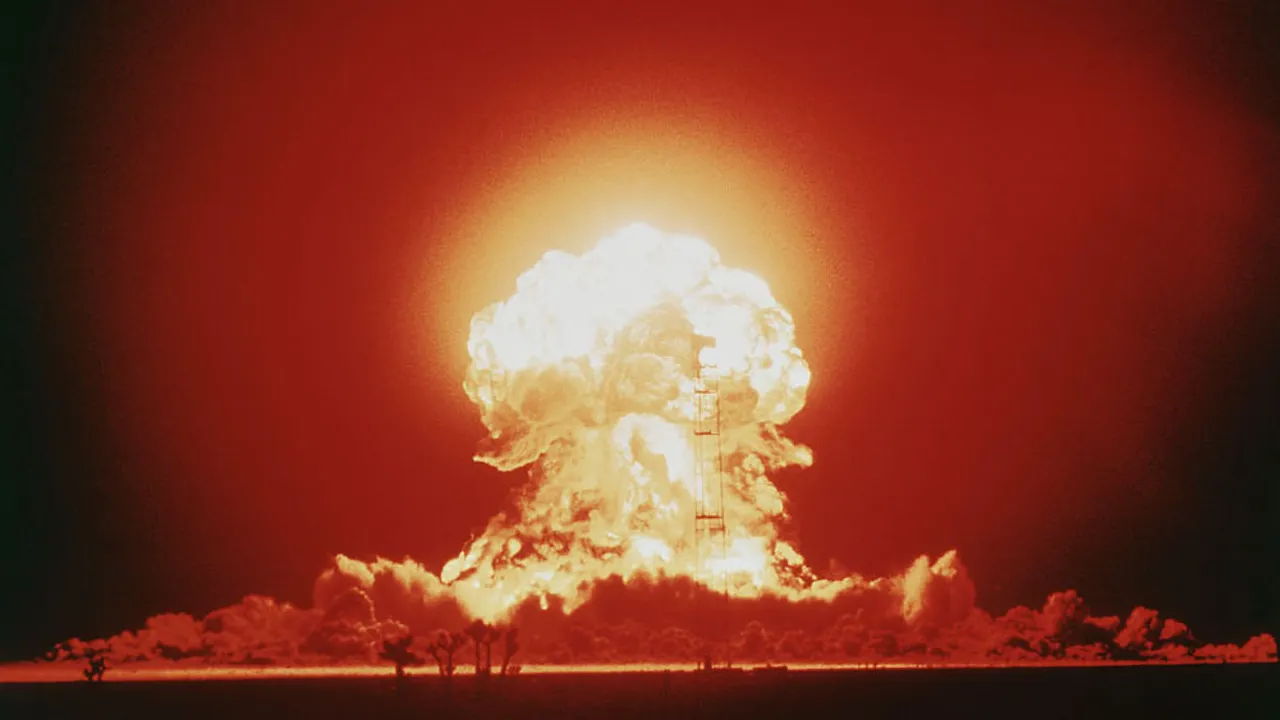London (Parliament Politics Magazine) – If the United States and Russia were to engage in a full-scale nuclear war, almost 5 billion people would perish as a direct result of the destruction of their food supply chains.
We shouldn’t be surprised by the widespread anxiety, given Vice President Joe Biden of the United States has just said that the world is closer to nuclear disaster than it has been in 60 years. But the actual question is how long nuclear war would last, lets find out!
How Long Nuclear War would last – Find out!
Some scholars are sounding the alarm that even a limited-scale exchange between countries like India and Pakistan may have devastating effects for global food supply and spark mass mortality all across the globe. This comes as growing tensions between the United States, Russia, and China have revived ancient worries of nuclear war.
According to the findings of a recently published multinational study that was conducted by researchers from Rutgers University, a nuclear confrontation that included less than 3% of the world’s arsenal could kill a third of the world’s population within two years. According to the findings of the study, a more extensive nuclear battle between Russia and the United States might wipe out three-quarters of the population of the planet within the same amount of time.
Studies Regarding How Long Nuclear War would Last!
A researcher recently argued that the world has entered “a dangerous new age” as a result of the breakdown in dialogue between nations, as well as the loss of defences that had been formed between nuclear superpowers several decades ago. T he Secretary-General of the United Nations, has issued a similar warning, stating that “the danger of nuclear confrontation, which was once inconceivable, is again back within the range of possibility.”
Read More: Doomsday Alert: Are We Heading To World War 3?
Although some researchers have predicted in the past that nuclear war would result in significant disruptions to the climate and food supplies, the most recent study marks the first time that researchers have calculated the potential extent of the famine that would result and the number of people who would die as a direct consequence of it.
The researchers have a theory that if even a tiny percentage of the world’s nuclear weapons were detonated, it would set off large firestorms that would swiftly inject sun-blocking soot into the sky, causing an abrupt cooling of the climate.
Effects of the World War 3
Researchers used climate models to determine how much smoke would ascend into the stratosphere, where there is no rainfall to wash it away, and how this would affect the temperature, precipitation, and sunshine levels on Earth. After that, they assessed how these changes would influence the output of a variety of crops, in addition to how fish would react to changes in the ocean environment.
As a direct consequence of this, they predicted that tens of millions of people would die instantly in the conflict zone, which would be followed by hundreds of millions of people dying of famine around the world.
Robock noted that this does not take into consideration the impacts of increasing UV radiation on crops, which are a direct result of the loss of the ozone layer that is brought on by the heating of the stratosphere. According to him, the findings would most likely be affected negatively by such an influence, which researchers seek to measure in further studies.
Certainly, but it depends on the extent of the global involvement and how long it lasts. If one side quickly disposes of the other… war over. I would not expect a nuclear war to last long… and I believe we could take out Russia in about two days… max.
— JayCee 💙🇺🇦 2022 – BLUE, PURE TRUE BLUE 🇺🇦💙® (@FoolsBelieve) April 24, 2022
Conclusion
The publication of the data follows growing agreement among experts that the risk of nuclear war is at an all-time high. It is projected that 5 billion of the world’s 6.7 billion people would perish in the case of a wider battle between the United States and Russia, who together are thought to have more than 90% of the world’s nuclear arsenal. And if you’re wondering How Long Nuclear War would last, the answer could be 2-4 years or maybe more, depending on the environment and other resources.
There are only nine countries in the world that possess nuclear weapons; these include the United States, Russia, France, China, North Korea, Israel, and the United Kingdom. If any of these countries were to use their nuclear weapons, the resulting soot would rise into the atmosphere and start a chain reaction that would lead to catastrophic cooling and famine.

